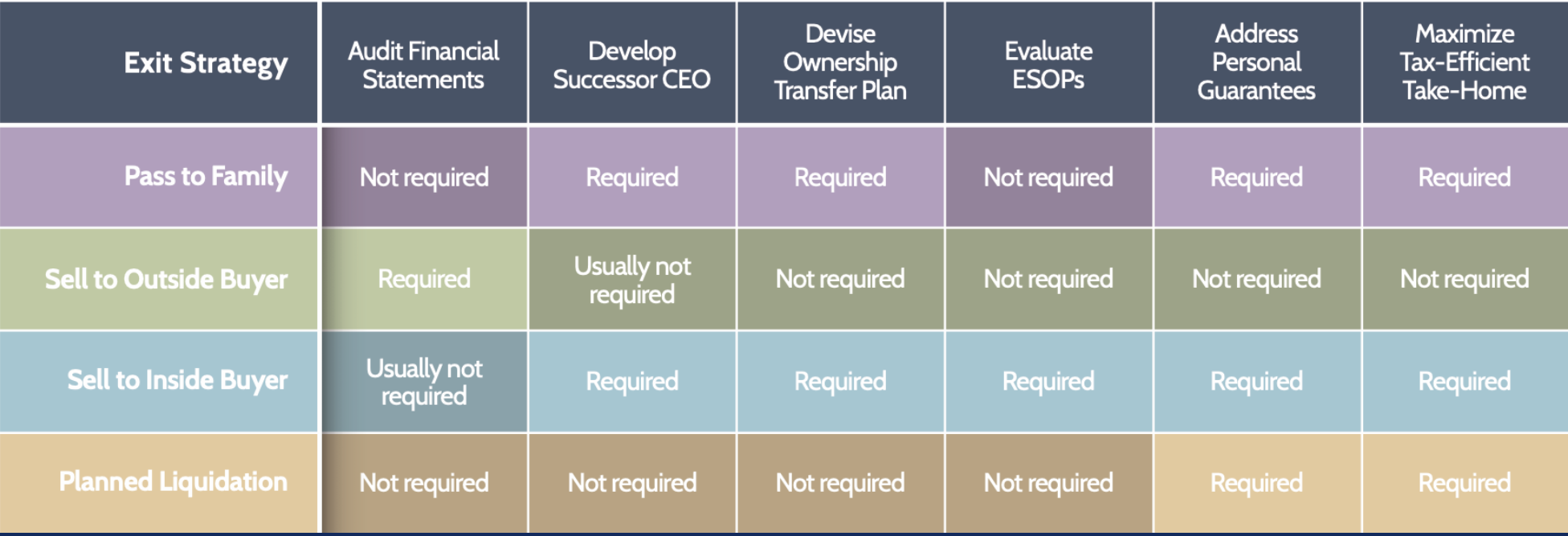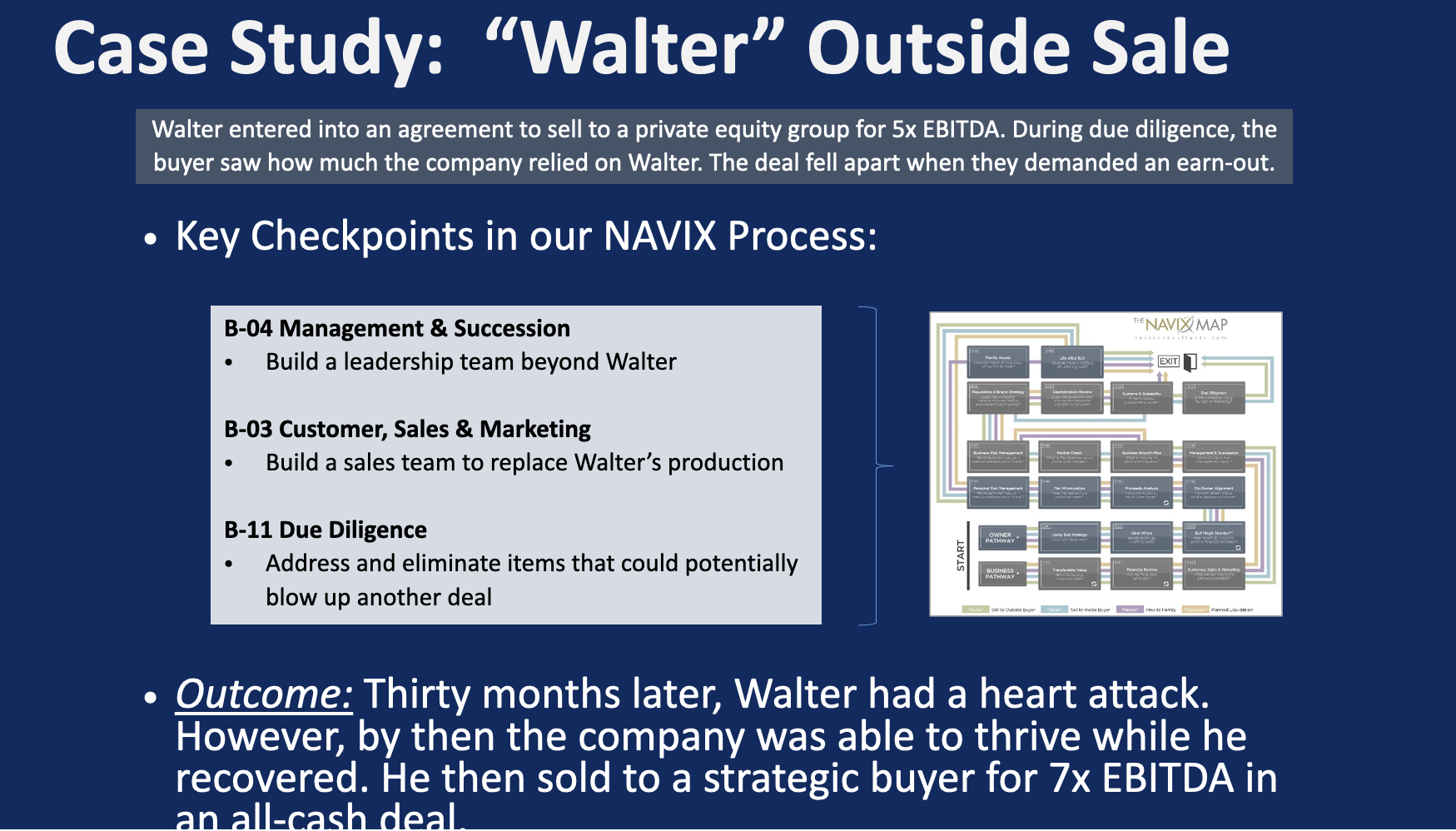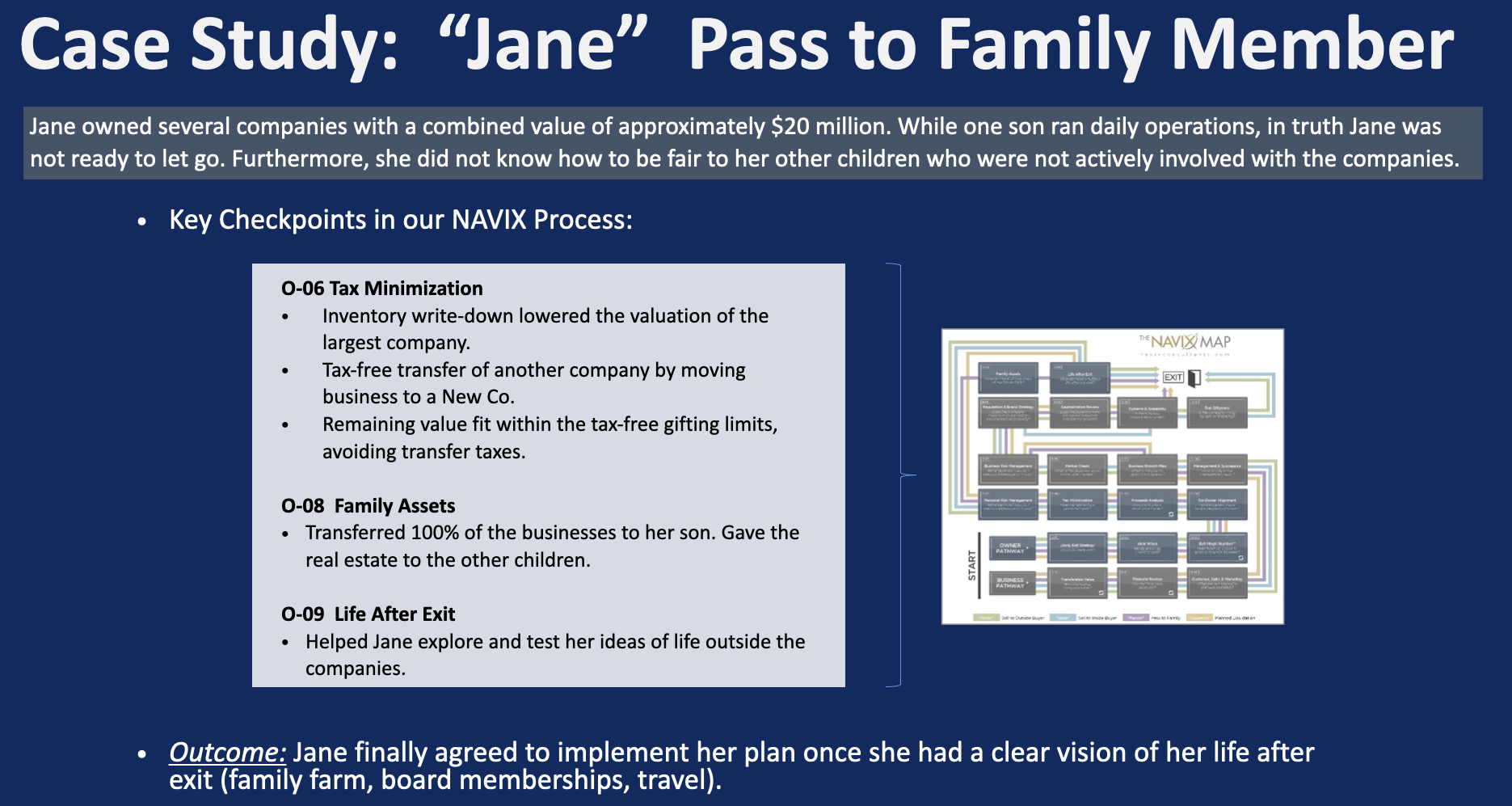
4 Types of Exits
5 Reasons Why Planning Leads to Success
Maximize Value: Get everything in order to sell when the market is favorable for your industry
Align with Personal Goals: Minimize tax liability while creating your vision for financial freedom
Transition: Prepare your team and community for a successful shift
Avoid Pitfalls: Anticipate, identify and navigate common challenges
Customize the Deal: Leave a legacy of integrity on your terms




